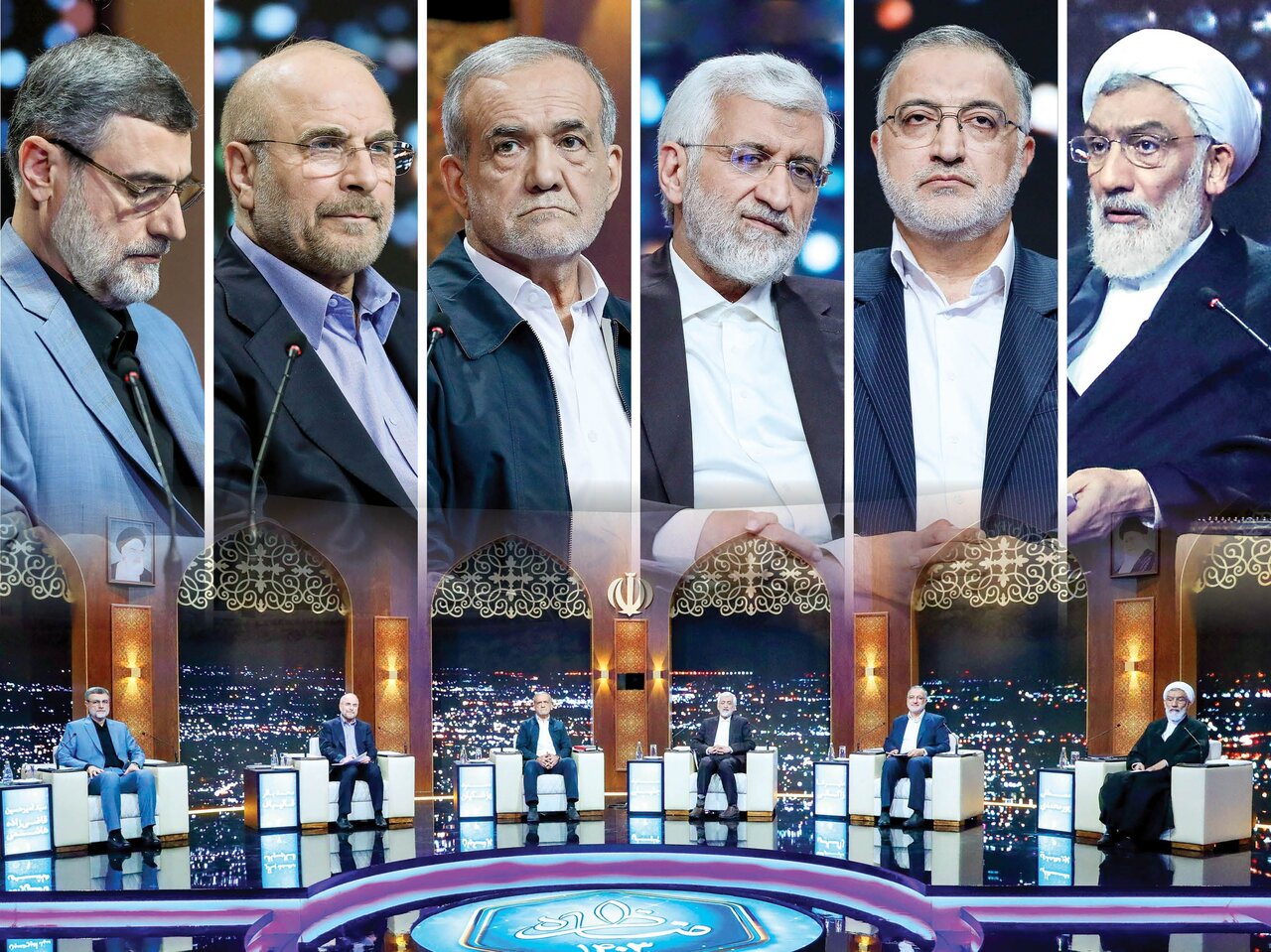Candidates address cultural and social concerns in 3rd debate

TEHRAN – The third presidential debate, held on Friday, focused on cultural and social issues, sparking heated discussion on topics such as the Hijab and access to the Internet.
The candidates presented differing viewpoints on internet access and its limitations. Mohammad Baqer Qalibaf, currently leading in polls, argued that restrictions are not the sole solution to ensuring internet security.
"As a former member of the Supreme Council of Cyberspace, I have firsthand experience and can offer five practical points for improving our cyberspace," Qalibaf stated. His proposals included:
1. Unconditional support for domestic platforms: the government should fully support successful domestic platforms like Neshan, Balad, and Eitaa.
2. Strengthening online business security: A dedicated group within the Cyberspace Council is needed to ensure the security of online businesses.
3. Promoting content production: Iran needs to prioritize and incentivize content production to catch up in this area, while simultaneously investing in infrastructure development.
4. Intelligent cyberspace monitoring: Precise and intelligent monitoring of cyberspace is crucial to address concerns from families, especially regarding Iranian youth.
5. Collaborative approach with foreign platforms: Engaging in a participatory manner with foreign platforms is essential.
Amir-Hossein Qazizadeh Hashemi argued that just like any other country in the world, Iran should not rule out the use of restrictions to ensure Internet security. He, however, argued that in some cases, Iranian authorities have gone overboard, like in restricting access to Google Play.
The conservative also emphasized that the Internet should be viewed as a “basic need” as it is an inseparable part of business management in today’s world. He said the Internet can particularly be helpful for working mothers, who prefer to make money remotely, so they can spend more time with their children.
Moderate candidate Mostafa Pourmohammadi expressed a preference for lifting most Internet restrictions. This stance drew comparisons to his previous statements from a decade ago, where he had strongly advocated for government control over Internet access. Social media users pointed out this shift in his position, accusing him of dishonesty.
Hijab laws and their violations
The issue of Hijab regulations and the consequences of their violation clearly divided the candidates into two camps.
All conservative candidates, with the exception of Saeed Jalili who offered only vague and general comments, maintained that the Hijab is a constitutional requirement in Iran and should be respected. However, they expressed a preference for avoiding harsh and heavy-handed responses to violations of these laws.
Moderate Pourmohammadi and reformist candidate Masoud Pezeshkian both seemed to voice strong opposition to any sort of response to Hijab violations.
The consequences of Hijab violations have been a sensitive and hot topic in Iranian society in the past years with differing opinions on how it should be addressed. However, reformists are often accused of exploiting the topic for political gain during elections.
Following the debate, Iranian women interviewed by IRIB reporters emphasized that while they hold the government's approach to Hijab violations as a significant issue, they prioritize concerns like the economy and employment.
"I have many issues with how the government has addressed the Hijab in recent years. I believe some decisions were deeply flawed. However, it's not my top concern," shared a woman in her thirties. "I'd much rather candidates focus on how I can pay my bills. I think this is the case for most Iranian women,” she added.
